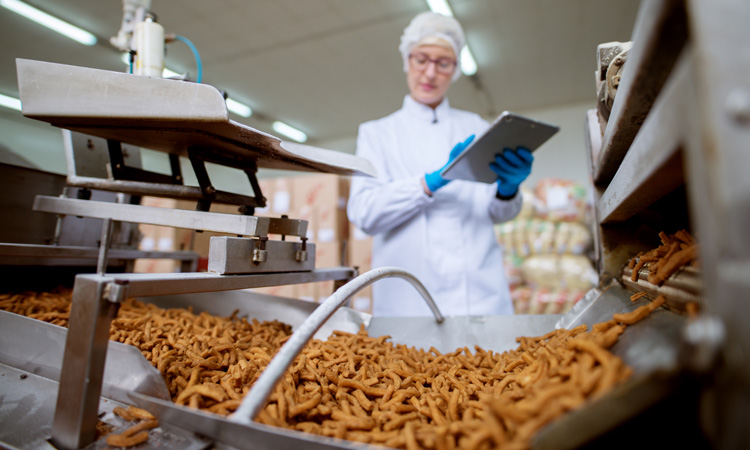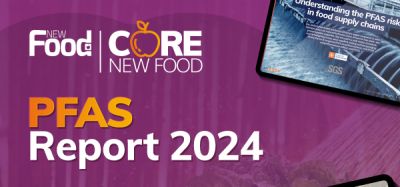FSA Annual Report highlights food safety stats from 2019/20
- Like
- Digg
- Del
- Tumblr
- VKontakte
- Buffer
- Love This
- Odnoklassniki
- Meneame
- Blogger
- Amazon
- Yahoo Mail
- Gmail
- AOL
- Newsvine
- HackerNews
- Evernote
- MySpace
- Mail.ru
- Viadeo
- Line
- Comments
- Yummly
- SMS
- Viber
- Telegram
- Subscribe
- Skype
- Facebook Messenger
- Kakao
- LiveJournal
- Yammer
- Edgar
- Fintel
- Mix
- Instapaper
- Copy Link
Posted: 3 July 2020 | Sam Mehmet (New Food) | No comments yet
Figures from the Food Standard Agency’s Annual Report and Accounts include foodborne illness estimations, hygiene compliance rates, public attitudes and more….


The Food Standards Agency (FSA) has published its Annual Report and Accounts for 2019/20, highlighting some of the FSA’s findings and challenges in the year ended 31 March 2020.
In her foreword to the accounts, FSA Chairman Heather Hancock explained that the UK’s exit from the EU dominated her Board’s agenda over the last 12 months and that the FSA has delivered on its Brexit objectives. However, she also acknowledged that the world is facing an unprecedented set of challenges associated with COVID-19 and that the agency has been doing all in its power to protect the safety of food.
She wrote: “I am pleased to say that the FSA is doing its part to ensure that people in the UK are supplied with safe food. The same resilience and ingenuity that the department applied to our Brexit preparations over the last year are being utilised again to meet these challenges. The FSA has 20 years of experience in incident management and risk communication, underpinned by the weight of FSA science. We have the capacity, expertise and relationships with the food industry and local authority enforcement to ensure that food safety does not become an issue for UK citizens during this crisis.”
Chief Executive Emily Miles added: “We have worked hard over the last year to improve the quality of life for people with food hypersensitivity, this followed a series of tragic allergy related deaths. We have progressed the delivery of the prepacked for direct sale labelling requirements, updated our food business and local authority allergy guidance, held the first FSA allergy symposium and our #easytoASK campaign has raised awareness of the allergy labelling rules with consumers and businesses.”
Key numbers from the report include:
- Research estimated 2.4 million people suffered from a foodborne infectious intestinal disease (2018)
- FSA estimated £9.1 billion as the societal cost of foodborne illness (2018), of which £3 bn is attributed to 13 foodborne pathogens and £6 bn is unattributed to foodborne illness
- FSA’s public attitudes tracker showed 73 percent of respondents were aware of the FSA and trusted the FSA to do its job
- 152 out of 384 local authorities connected to the improved Register a food business online service (31 March 2020)
- EU Exit: £19 million additional ring-fenced funding secured to support FSA preparations
- Food hypersensitivity: £4.6 mn funding for key activities in 2019/20 and 2020/21
- 79.2 percent of businesses in Northern Ireland supplying food directly to consumers achieved a food hygiene rating of five (‘Very good’)
- 68.9 percent of businesses in Wales supplying food directly to consumers achieved a food hygiene rating of five (‘Very good’)
- 100 percent meat food business operators rated ‘satisfactory’ or above for compliance in Northern Ireland
- 98.7 percent meat food business operators in Wales rated ‘satisfactory’ or above for compliance
- FSA notified of and investigated 2,479 food, animal feed and environmental contamination incidents
- Food safety in the home: 67 percent reported behaviours are in line with recommended food safety practice (Food and You survey)
- Food crime: 200+ people warned by the National Food Crime Unit of ‘fat‑burning’ DNP risks after allegedly purchasing it
- The FSA’s total science and research spend: £12.7 mn.
The Annual Report and Accounts can be found here.
Related topics
COVID-19, Food Safety, Outbreaks & product recalls, Regulation & Legislation, The consumer








